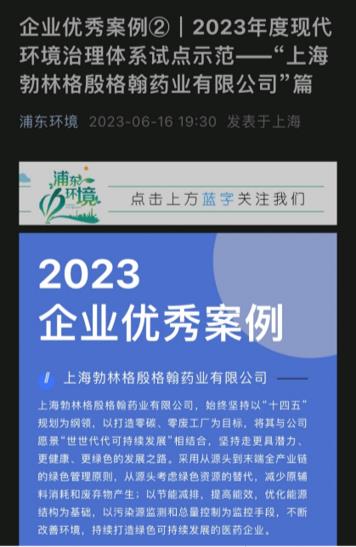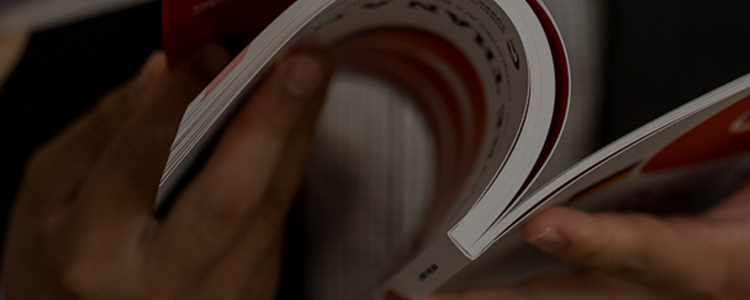Company Name: Boehringer Ingelheim Pharmaceuticals Co., Ltd.
Project Name: pilot site for circular economy
Award Category: Innovation Sustainable Product
Product / Service Introduction
Since 2014, Boehringer Ingelheim Shanghai Pharmaceuticals Co., Ltd. (referred to as “BISPL”) has served as a pilot site for circular economy within Boehringer Ingelheim globally. Sustainable development goes hand-in-hand with our principles of planning in generations, innovation, taking responsibility for our communities and the environment, and serving humankind. We are aware that approximately 80% of a product’s environmental impact is determined during the design phase. While this is a complex process, we believe that it is our responsibility – towards our patients, customers, partners and the planet – to minimize the environmental footprint across our value chain and portfolio, while maintaining the highest standards for product safety and quality.
To achieve this, we have established a standardized management system based on the 7R principles, utilizing the PDCA method, and aligning with the latest laws, regulations and best practices. As a leading pharmaceutical company, we actively contributes to the circular economy across the entire value chain, while defining the key areas of focus with the following sequence:
Green Chemistry in R&D
Eco-design in Product Design
Waste Management in Manufacturing Operations
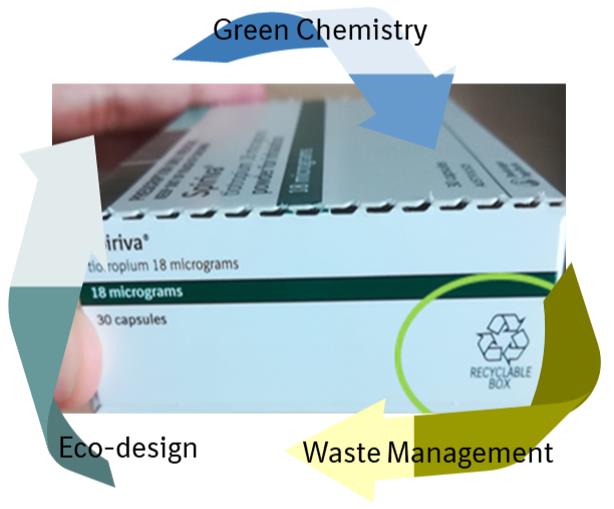
Explanation of Circular Economy Practice
BISPL consistently bolsters green chemistry in research and development, prioritizes eco-friendliness in product design, seeks solutions for waste management in manufacturing, and fosters a corporate culture that values green behaviours. Consequently, BISPL holds the distinction of being the first pharmaceutical company in China to obtain “Zero-Waste-to-Landfill” certification and leading the industry as the first pharmaceutical company to achieve carbon neutrality, certified by TÜV Rheinland.
Green Chemistry in R&D
Drug manufacturing is known for its resource- and energy-intensive nature, resulting in significant waste production. BISPL takes iGAL (Innovation Green Aspiration Level) as a tool to assess the environmental friendliness of drug manufacturing processes relative to the industry, a unified green chemistry metric developed by Boehringer Ingelheim and then promoted to a consortium of 12 pharmaceutical companies. We are always developing and optimizing processes through using Green Chemistry principles. Here are the key areas recent years:
Waste prevention: We strive to reduce the amount of waste generated to no more than the average level of 105 kg per 1 kg of API products;
Less hazardous chemical syntheses: We continuously work on developing new synthesis routes or methods that can replace dangerous reactions;
Catalysis: We explore the utilization of both metal and enzyme catalysts;
Safer solvents: We refer to BI Solvent Sustainability Guide to select solvents that are eco-friendly and prioritize their usage in our processes.
Eco-design in Product Design
At BISPL, we prioritize quality and eco-friendliness in product development. With the use of Life-cycle Assessment (LCA), we continuously develop and optimize our products with eco-design principles, like weight reduction (of medicine packaging boxes, instruction manuals and corrugated boxes), process optimization to minimize label usage, and recycling icon on medicine packaging boxes.
Waste Management in Manufacturing Operations
BISPL converts waste into reusable resources through lean production, 5S management system and packaging carton reuse, while reducing waste management and operating costs effectively. We also shaped an online waste management model that focuses on risk control throughout the lifecycle of waste to find optimal solutions for waste reduction and resource utilization.
Overview of Product/Service Lifecycle
Product Design:
Recent significant accomplishments in Green Chemistry:
Oxindole: An optimization project aimed at improving the synthesis route for oxidized indole, a starting material of our product, Ofev. Through optimization efforts, we have cut solvent costs and enhanced catalyst efficiency.
Enzyme Catalysis: A greener approach targets a block (chiral amine fragment) in KRAS inhibitors, which stands significantly better efficiency and specificity, milder reaction conditions and reduced waste generation.
CIBA: 2-chloro-5-iodiobenzoic acid (CIBA) is an important raw material for the synthesis of our product, Jardiance. CIBA is also represented a new direct iodization route, offering improved environmental friendliness (PMI 20.8, AE 91.1%), enhanced safety (no hazardous reactions, lower operating temperatures), and simplified processing (single-step).
3-OH THF: 3-hydroxytetrahydrofuran (3-OH THF) is a key starting material for Jardiance. We successfully addressed genotoxic impurities in the second-generation process, a key milestone in its development, thereby enabling the completion of validation procedure.
Recent notable achievements in Eco-design:
Reduce weight of medicine packaging boxes by 20%-30% by selecting lighter cardboard as raw material;
Reduce weight of instruction manuals by replacing 60g coated paper with 41g carbonless copy paper;
Implement material changes to decrease the weight of corrugated boxes;
Transition from labelling single corrugated box to applying labels on entire pallet to minimize label use;
Incorporate recycling icon on medicine packaging boxes to raise awareness among downstream users.
Production:
Lean Production is a systematic manufacturing method that enhances productivity by minimizing waste. It focuses on reducing uneven workloads or overburden to increase value and decrease costs.
5S Management System, which stands for Sort, Straighten, Shine, Standardize, and Sustain, is a systematic approach to visual management. Implementing 5S at BISPL enhances the production environment and operational efficiency while also promoting reuse and recycling. As a result, pharmaceutical-related waste has significantly decreased from 39.3 tonnes in 2020 to 10.19 tonnes in 2022.
Useage:
Packaging Carton Reuse: Since 2021, BISPL has collaborated with packaging carton suppliers to identify used cartons that meet quality standards and reuse them. This initiative resulted in a reduction of 28,578 packaging cartons consumed.
Recycling and Recovery:
BISPL set up an online waste flow monitoring platform, monitoring the entire lifecycle of domestic waste, general industrial solid waste, and hazardous waste within the plant. It serves as a digital and visual tool, showcasing the energy conservation and carbon reduction benefits achieved through waste recycling by comparing historical waste flow data. The platform also facilitates accurate matching of raw material and waste streams. In 2022, BISPL attained the highest 3-star “Zero Waste to Landfill” certification from TÜV Rheinland Germany, with a landfill diversion rate of 99.04%.
More Product / Service Highlights
“Zero Waste to Landfill” Certification from TÜV Rheinland Germany
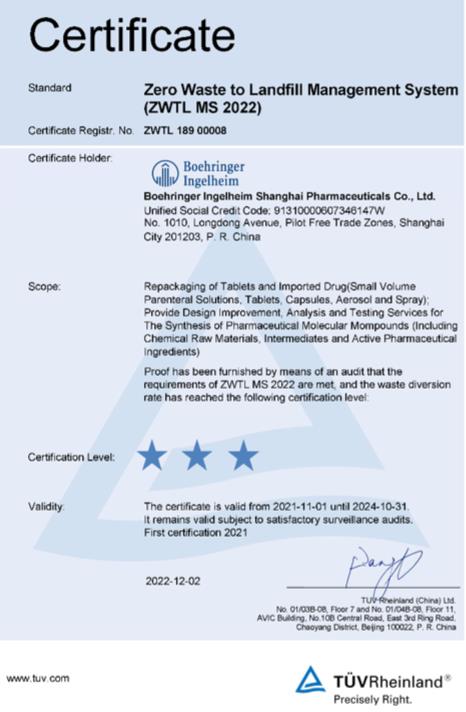
Waste Disposal Flow Running in Online Platform - Matching Raw Materials with Waste Streams
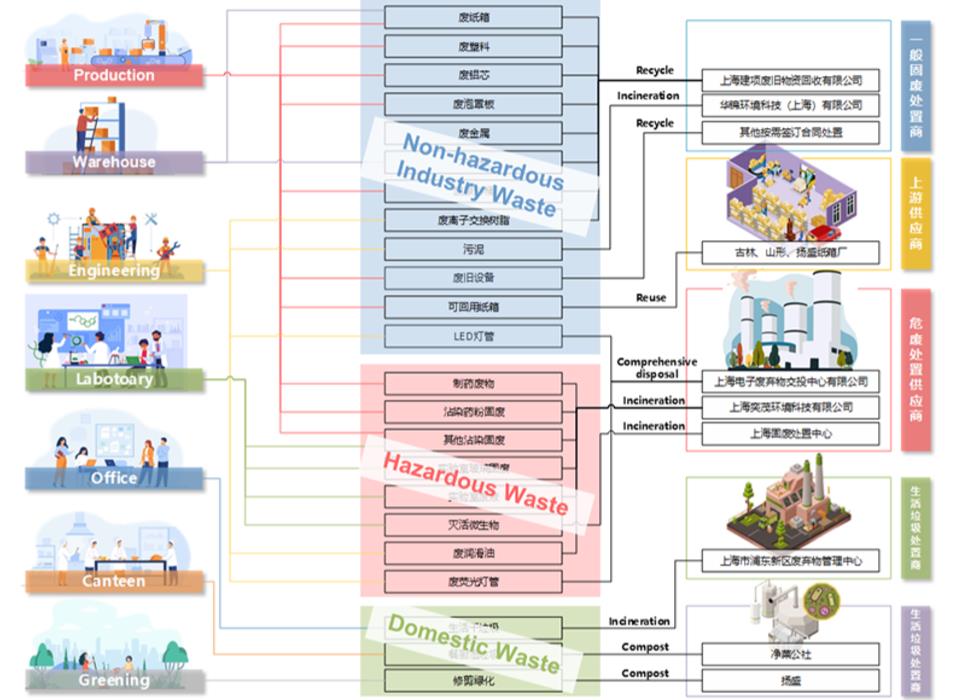
Positive Environmental Impact and Economic Benefits
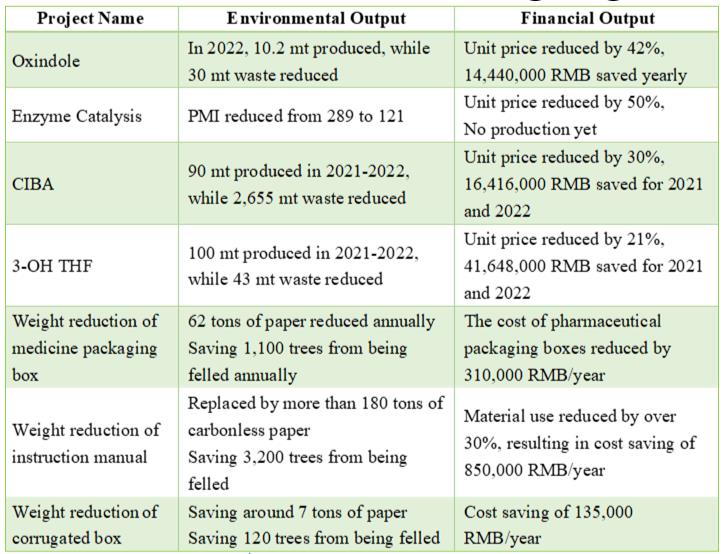
Social Impact - Scaling up in other industries or organizations
Collaborating with the Shanghai Environmental Protection Industry Association, BISPL actively contributed to the drafting of the “Zero-Waste Factory Evaluation Norms,” leveraging our expertise and experience to shape the common standards that guide the manufacturing industry.
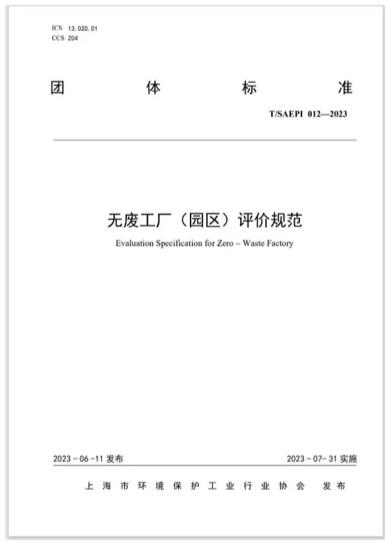
Social Impact - Scaling up in other industries or organizations
BISPL has emerged as a flagship entity in the environmental governance system of Pudong New Area. Our circular economy case has been widely promoted across the district through the official platform of the Pudong Ecology and Environment Bureau. We take pride in being a pioneering bubble of Pudong New Area’s initiative for zero-waste factories as part of China’s broader construction of zero-waste cities.
